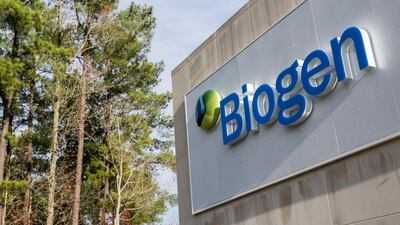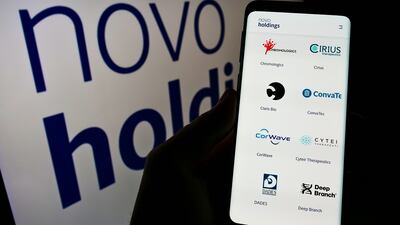Immunological
2030 sales forecasts for Novo’s obesity hope are an order of magnitude larger than its closest rival among 2025’s expected debutantes.
Amgen’s Imdelltra for small-cell lung cancer is one of two bispecific T-cell engagers approved for solid tumors, but data at the WCLC meeting show other DLL3-targeting BiTEs may be on the way.
The IL-4/13 inhibitor was approved in the US for COPD, a blockbuster-sized indication, but the commercial ramp could take time and several competitors are on its heels.
As it posts third-quarter numbers that again reveal the decline of revenues from its multiple sclerosis portfolio, the US biotech major is entering into the hot area of targeted protein degradation to boost its immunology and neurology pipeline.
Deal Snapshot: The Belgian company follows a tradition of Western pharma companies relying on local expertise to market their products in China.
Being the Chinese biotech’s backbone asset in the autoimmune disease area, telitacicept, a BlyS/APRIL dual targeting fusion protein, has hit its target in a China-only Phase III study in generalized myasthenia gravis. The candidate is also being investigated in global Phase III trials in systemic lupus erythematosus and Sjögren's syndrome.
Biocon maintains it doesn’t expect the US to remain an eight to 10 player market for adalimumab biosimilars for long and also outlines expectations for its GLP-1 portfolio, led by liraglutide, seen as a major growth driver in the coming years.
Discontinuation of the AML study created concern about potential readthrough to a pivotal MDS trial, but the company and analysts pointed out differences in the diseases.
Francesco Hofmann, head of R&D at the mid-sized French group, tells Scrip that its strategy of not playing in the spaces that are dominated by big pharma is paying off.
Nemluvio is a first-in-class IL-31 inhibitor that the US FDA approved for prurigo nodularis.
After a quiet July, August and September are shaping up to be busy on the approvals front. Already this month, the US FDA has approved Adaptimmune’s Teclera for synovial sarcoma, Phathom’s Voquezna for gastro-esophageal reflux disease and Servier’s Voranigo for gliomas. Here, Scrip takes a look at ten other approvals for novel products in the offing for the third quarter.
Major Japanese firm picks up US drug discovery platform company Jnana in apparent bid to strengthen discovery capabilities and build its mid-stage R&D presence in the renal area.
The Milan-based drugmaker, which is reportedly attracting attention from private equity firms, has put in a strong performance in the first half of the year, helped by a strong showing for its rare disease franchises.
The drug maker’s next-generation JAK1 inhibitor povorcitinib has an addressable market potentially worth more than $3bn if it wins approval in hidradenitis suppurativa and vitiligo.
Already abandoned for psoriasis and psoriatic arthritis, the failure of Ventyx's TYK2 inhibitor for Crohn’s disease signals the end of the project, leaving Takeda and Alumis as BMS's principal rivals in the field.
The US FDA approved Leqselvi for alopecia areata, making it the third drug in the class for the indication after Lilly’s Olumiant and Pfizer’s Litfulo.
Big biopharma is struggling to find the next generation of cancer immunotherapies, but the sector’s smallest companies might just have the platforms of the future.
The Barcelona-headquartered group’s Lilly-partnered atopic dermatitis drug is enjoying a decent launch in Germany and reimbursement has just been secured in the UK.
Flush with cash, the controlling stakeholder of Novo Nordisk’s life sciences investment arm is increasing its financing of other biopharma innovators.
Artiva grossed $167m by selling more shares than previously planned, but at a significantly lower price per share than it proposed earlier in the week, to fund its NK cell therapy programs.















